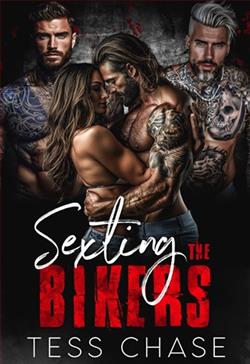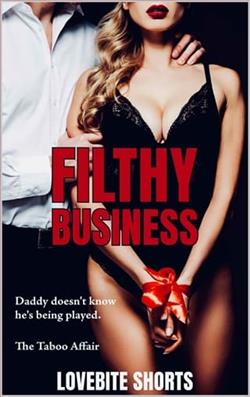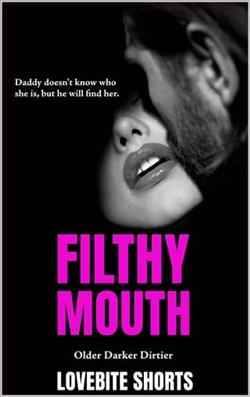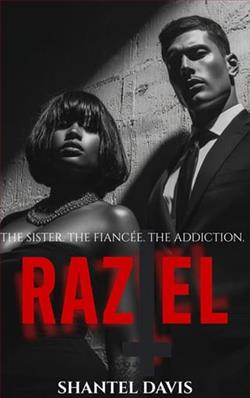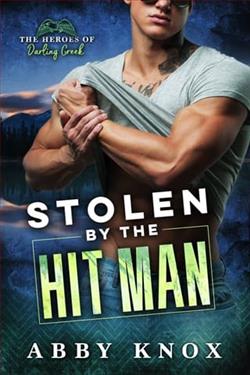Page 82 of Heartbreak Bay
GWEN
The impulse to check on the kids, check on Sam—it’s so strong and painful that holding it back is like touching a live wire. But Kez is right: we can’t take the risk. This man is a killer, we’ve seen that. And Samcan’tbe part of this now, not if my kids are going to be safe and have at least one of us left to love and guide and protect them. But I don’t intend on dying, and neither does Kez.
We’re hunters.
Kez, of course, has thought ahead; she knows that Javier will do something to find us, and probably something like file a missing persons report. So she pulls off the highway an hour into our trip and takes a detour to an area I don’t know. It’s dark, rural, completely anonymous. There, in a beat-up, half-destroyed barn, we meet a tall, thin African American man in a Che Guevara T-shirt who trades my SUV for a small, hard-used Honda. “Can’t stay in your car,” she tells me. “They’ll put out a BOLO for the plate number. We need something completely different if we’re going to pull this off.”
No words are exchanged between her and the man in the Che shirt; they just exchange nods, and she hands him an envelope that I can onlyassume holds cash. I don’t know how she knows him, and I don’t ask either. Doesn’t seem like the time.
The Honda runs smoothly but rides rough, and the mileage on it looks high enough for it to have been to the moon and back, but it holds up through the night as we drive the still-busy highways, pulling over to grab sleep when we can.
“We need to talk about what we’re going to do,” I say, and she nods silently. “We can’t play his game, not completely. Just enough to make him think he’s got us. Maybe that will throw him off.”
“We play for now, or ours will get hurt,” she says. “Gwen. He thinks you’re guilty of something.”
“Apparently.”
I sense rather than see her glance. “Helping Melvin kill those women?” I don’t answer that. The road noise grinds up the silence, and she finally says, “He seems to have a type.”
“I’m not like Sheryl.”
“Youaresomebody people think is a killer. He’s wrong, we both know that. But it makes sense in whatever passes for his mind.”
“I want to stop and buy a pay-as-you-go phone. We can’t use this one. I need to check on Sam and the kids.”
“No.”
“I need it.”
“You know he’ll be watching us.”
“We’re not trackable right now unless he’s the freaking NSA.”
“And maybe heisthe freaking NSA, you thought of that? Hell, I don’t know what those people get up to in their spare time, and neither do you! You underestimate him, we lose.”
I want to argue, but she’s not wrong enough for me to be right. It feels like we’ve launched into space, in this tight little can of a car, driving through the dark. Far from home and shelter and safety.
“You’re worried about the kids,” she says, and her tone is gentler this time. “I know. But Sam is there, and he’s not going to leave them. You know that.”
“I know,” I say. “But I’m theirmom.”
“And you’re doing the best thing you can. You’re taking the danger away.” Kezia reaches over and tries the radio. It’s tinny and full of static, but she finds a country station, and we silently let it play for a while.
I’m not sure when I fall asleep, but when I wake up, we’re in a different climate—warmer, more humid. The land’s flatter. And the sun’s coming up on our left. “Morning,” she says, and yawns. Stretches without letting go of the wheel. “I’m pulling off at the next truck stop for gas and coffee and bathroom. Want to take the wheel after?”
“I’ll drive,” I say. “Where are we?”
“North Carolina, just passed the border. Got another few hours to where we’re going,” she says.
I check the map on the phone, and we’re on target. The marked spot is called Salah Point, and it’s barely a dot on the map.Screw it,I think. He gave me a phone that has internet access, so I’ll use it. I search the area around Salah Point and come up with a little history. The area isn’t much ... rural, depressed, same as a lot of the South, only with more humidity. Fishing failed in the mid-1990s for good. The main industry is—was—a cannery that’s been shut ever since, and a couple of glassmaking and pottery factories that are barely hanging on. Like most little downtowns, the snapshots the search function turns up feature antique stores heavy on southern nostalgia, light on actual valuables. A Sonic Drive-In and a Dairy Queen. A regional Wal-Mart. The usual.
The last page has a shot of a lonely-looking lighthouse sitting on the horseshoe-shaped bay, and a brief, dry history about it. Apparently it’s a historic site, and also a private residence. The harbor it once guarded—though there’s no evidence the beacon still works—is called Cully Bay, but the article notes it has another nickname, for the legend of shipwreckers who used to turn off the lighthouse beacon and let ships founder on the rocks to loot lost cargo.
Heartbreak Bay.
“Why does he want us there?” I ask her. She shrugs. “It can’t be his home turf. He’s not that stupid.”
The burner phone he gave us has a small, eye-straining screen, but I make do. I search for anything with Salah Point, any notable events. I strike gold, and my intake of breath makes Kez give me a quick, concerned look. “What?”










